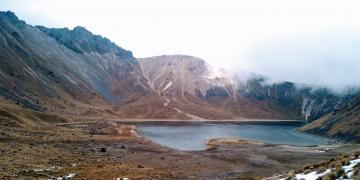
Environmental justice
Environmental justice (EJ) theory and activism address the uneven distribution of the benefits and burdens of extraction economies. EJ is distinct from mainstream environmentalism and remains an underdeveloped field in Europe. It arose in the 1980s out of art, literature, film, and activism in marginalized communities to contest environmental racism in the USA. While scholarly understandings of EJ initially relied on appeals to rights from the settler-colonial state, it has since come into productive conversation with Indigenous perspectives, which offer alternative understandings of decolonization and relationships to land that do not rely on colonial constructions of territory, land ownership, and the nation-state.
As ongoing and on-the-ground EJ struggles around the world, especially in the Global South, are rapidly coming into sharp relief as the effects of the climate crisis intensify, this Diggit Magazine file captures some of the latest ideas and topics that expand understandings of environmental racism, migration, and decolonization through an EJ lens. The various contributions to this EJ file disrupt, revise, and expand scholarly and activist methodologies for honoring and amplifying marginalized perspectives and alternative ways of knowing to collectively work towards more socially and environmentally just futures.






